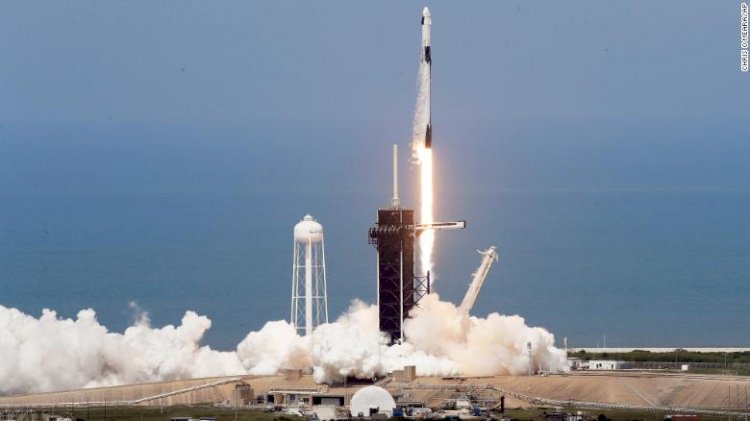NASA, SpaceX launch astronauts first in a decade from US soil
A SpaceX spacecraft carrying two NASA astronauts flew into outer space on 30 May 2020, marking the first time that humans traveled from US soil into Earth's orbit in almost a decade.

Liftoff occurred from Florida's Kennedy Space Center just after 3:20 pm ET. Astronauts Robert Behnken, 49, and Douglas Hurley, 53, will spend nearly 19 hours on board the SpaceX Crew Dragon capsule while gradually heading towards the International Space Station.
The spacecraft is anticipated to dock around 10:29 am with the space station. ET Sunday 31 May. Since the Space Shuttle Program ended in 2011 the United States has not sent its own astronauts into space. Since then, astronauts from NASA have had to fly to Russia and train on a Soyuz spacecraft from the region. Those seats have cost NASA up to USD 86 million each.
The launch also marked the first time a commercial aerospace corporation had taken humans into Earth's orbit. Following the Covid-19 pandemic, which shut down both private and government operations in the US, the launch of SpaceX 's Crew Dragon spacecraft has been moving ahead.According to NASA, the mission needs to start in order to keep the International Space Station, a giant orbital laboratory, fully fitted with US astronauts.
NASA, SpaceX and military personnel gathered in control rooms to facilitate the launch, and they introduced additional safety steps, such as swapping control rooms when a new shift starts so that the other room can be deep cleaned.
This launch has also served as a kind of litmus test for NASA 's drive to collaborate with the private sector more extensively.
SpaceX developed Crew Dragon under NASA's Commercial Crew Program which handed most of the design , production and testing of new human-rated spacecraft to the private sector for the first time in the history of the space agency. NASA awarded SpaceX and Boeing a fixed-price contract to get the job done, and Boeing experienced a big setback last year during an unmanned test flight.






























